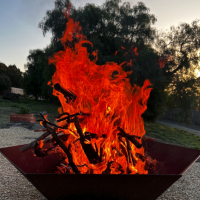Beginner's question on tyre pressures
I went to the local petrol station to check my tyre pressures and they were only about 25 psi and yet when i felt them they felt fully pumped up.
I was worried if i inflated them to 65 psi that they would explode! Am I missing something?
Comments
-
What size are your tyres?
A maximum pressure is just that - the maximum that they have been tested to withstand, it doesn't mean you need to put that pressure into them.
Some bikes have a maximum rider weight of 120kg. That doesn't mean that you have weigh 120kg before you can ride the bike.0 -
This is written on the tyres 47 - 406 20x1.75 I'm not sure which is the tyre size.
The wheel size is 20 inches.0 -
It's a maximum pressure. Your feeling about them exploding isn't far off. There will be a significant safety margin, but the max pressure is there to prevent damage to the tyre or rim if they're inflated too much. The pressure you should run is down to many factors, so if your tyres feel fine at 25psi, keep running them at 25psi.0
-
If you don't have a pressure gauge on your usual pump then as a rule of thumb (see where I'm going with this) - if you press hard with your thumb on the tyre on a commuter type bike, the pressure should give the feel somewhere between the firmness of a green banana and an apple. Any softer or harder than that then adjust accordingly.
Sometimes. Maybe. Possibly.
0 -
What type of apple?
How old?0 -
I don’t think that’s very sound advice. A ‘commuter type bike’ could be anything from a hybrid with 36mm tubeless to 23mm tubed clincher tyres. The former’s max pressure would probably be c80psi, the latter’s 140 (tho most people would ride both at much lower pressures). Each will have very different ‘thumb feel’ - an overinflated tubeless risks a blowout, an underinflated clincher a pinch-flat.photonic69 said:If you don't have a pressure gauge on your usual pump then as a rule of thumb (see where I'm going with this) - if you press hard with your thumb on the tyre on a commuter type bike, the pressure should give the feel somewhere between the firmness of a green banana and an apple. Any softer or harder than that then adjust accordingly.
0 -
I prefer the face method. Cheek = medium rare, chin = medium, forehead= medium well.photonic69 said:If you don't have a pressure gauge on your usual pump then as a rule of thumb (see where I'm going with this) - if you press hard with your thumb on the tyre on a commuter type bike, the pressure should give the feel somewhere between the firmness of a green banana and an apple. Any softer or harder than that then adjust accordingly.
Pinno, מלך אידיוט וחרא מכונאי0 -
Cheek? Which cheek?0
-
Sometimes. Maybe. Possibly.
0 -
Pressure is pressure no matter what size tyre. Your thumb pressing on it is the same size. Equal force will cause equal deflection. Anyway I said it’s a rule of thumb not a fucking science experiment!stiffupperlip said:
I don’t think that’s very sound advice. A ‘commuter type bike’ could be anything from a hybrid with 36mm tubeless to 23mm tubed clincher tyres. The former’s max pressure would probably be c80psi, the latter’s 140 (tho most people would ride both at much lower pressures). Each will have very different ‘thumb feel’ - an overinflated tubeless risks a blowout, an underinflated clincher a pinch-flat.
Sometimes. Maybe. Possibly.
0 -
These for a Brompton or similar?philips56 said:This is written on the tyres 47 - 406 20x1.75 I'm not sure which is the tyre size.
The wheel size is 20 inches.
Out of that lot, the tyre “size” is your 20” diameter and the 1.75 is the width, also in inches, but see below… the wheel won’t be 20 inch.
The 47-406 is just the metric equivalent of those numbers, according to the ETRTO definitions. Yes, there really is a “European Tyre and Rim Technical Organisation” apparently! Not helpfully, the numbers are reversed, and don’t exactly correspond to the Imperial values. 47mm width is actually 1.85”, and 406 is about 16” - not 20. This is because the 20” is measured as the diameter overall of the inflated tyre, whereas the 16” bit is the effective rim Diameter that tyre fits onto, measured at the bead hook edge. If you took 16 and added approximately 2 inches tyre thickness each side of it you’d end up with 20, if that makes sense.
It’s a mishmash of standards, intended to make comparison of tyres possible and define what tyres from any manufacturer will fit which rims.
Road bike tyres/wheels are commonly referred to as “700C” but the rim size they fit is actually 622mm these days, and is often called 28” even though it is actually 27.6” outer diameter. 700 mm is a nominal outer diameter really.
And there is another older (still made but rare) 635mm rim size. Also called a 28”.
And yet, an MTB 29’er is actually the same standard 622 rim diameter as the road wheels, just usually wider. The intermediate 27.5” size commonly used in MTB bikes is also described as “650B”, referring to an old standard which had road wheels with that smaller outer diameter. The actual ETRTO size of one is 584 as the rim diameter.
Glad you asked? Hope that helps 😀
Open One+ BMC TE29 Seven 622SL On One Scandal Cervelo RS0




